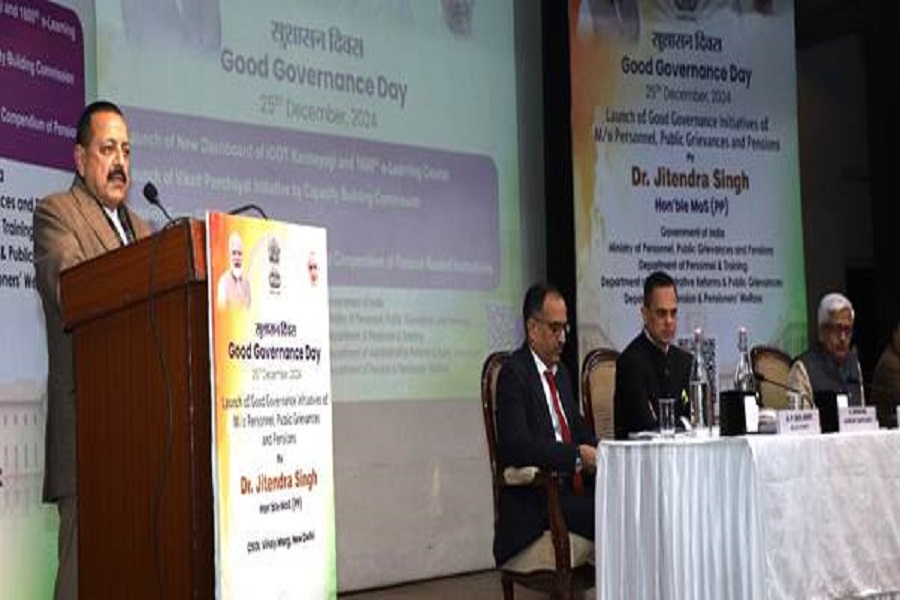Saj Hotels coming with IPO to raise Rs 27.63 crore

Follow us Now on Telegram ! Get daily 10 - 12 important updates on Business, Finance and Investment. Join our Telegram Channel
Saj Hotels
- Saj Hotels is coming out with an initial public offering (IPO) of 42,50,000 equity of face value of Rs 10 each for cash at a fixed price of Rs 65 per equity share.
- The issue will open on September 27, 2024 and will close on October 01, 2024.
- The shares will be listed on SME Platform of NSE.
- The share is priced 6.50 times higher to its face value of Rs 10.
- Book running lead manager to the issue is Corpwis Advisors.
- Compliance Officer for the issue is Harsha Darshan Mandora.
Profile of the company
Saj Hotels is engaged in Hospitality industry. It provides a diverse portfolio of Business-to-Business (B2B), Business-to-Business-to-Customer (B2B2C) and Business-to-Customer (B2C) hospitality offerings, spanning from traditional resort accommodation to villa rentals and restaurant and bar properties. It focuses on providing comprehensive services to guests, including food and beverage options, recreational facilities and event hosting capabilities, reflecting a commitment to ensuring a memorable experience for its visitors.
The company offers a range of accommodation options across various destinations, each tailored to provide comfort and convenience. Its resorts have well-appointed rooms and suites, complemented by a variety of dining venues including restaurants, bars and in-room dining services. Its dedicated team provides personalized concierge assistance, access to rejuvenating spa facilities, and a host of recreational activities to ensure a memorable stay for every visitor.
The company’s resorts serve as versatile event venues, equipped to host a wide array of gatherings including conferences, weddings, and social events. With comprehensive event planning and management services, it ensures seamless execution and unforgettable experiences for its clients and their guests. Additionally, it is also developing villas named, ‘Saj Villas’ in Goa. These villas have carefully curated range of 2BHK and 4BHK options for guests; whether for family vacations, group gatherings or romantic escapes. The property will also have a swimming pool for enhanced guest experience. Saj Villas provides an ideal lodging solutions tailored to diverse preferences.
Proceed is being used for:
- Capital expenditure requirements towards expansion of existing resort properties
- Funding of working capital requirements of the company
- General corporate expenses
Industry Overview
Hotel investments are capital intensive and have a long gestation period. While the investor is expected to meet 100% of the investment (via equity and debt in a ratio acceptable to the brand), very often the absence of any guaranteed return reduces the investor universe considerably. Return-focused investors are increasingly seeking fixed or operating leases in hotels. As a result, over the last few years, hotel leasing has gained traction where hotel management companies assume the role of a lessee and participate in the development risk by investing capital in hotel projects. Most hotel lease contracts are negotiated for warm shell or fully fitted out structures. Having said that, investors always seek skin in the game from lessees in the form of capital commitments. The commercial terms of a hotel lease may vary based on the capital contribution of the investor and the lessee.
According to WTTC, India is ranked 10th among 185 countries in terms of travel & tourism’s total contribution to GDP in 2019. The contribution of India's travel and tourism sector to India's economy was worth Rs 15.9 trillion ($191.25 billion) in 2022. Over the next decade, India’s Travel & Tourism GDP is expected to grow at an average of 7.8% annually. In 2020, the Indian tourism sector accounted for 39 million jobs, which was 8% of the total employment in the country. In 2021, the travel & tourism industry’s contribution to the GDP was $178 billion; this is expected to reach $512 billion by 2028. By 2029, it is expected to account for about 53 million jobs. In India, the industry’s direct contribution to the GDP is expected to record an annual growth rate of 7-9% between 2019 and 2030. The travel market in India is projected to reach $125 billion by FY27 from an estimated $75 billion in FY20. The Indian airline travel market was estimated at $20 billion and is projected to double in size by FY27 due to improving airport infrastructure and growing access to passports. The Indian hotel market including domestic, inbound and outbound was estimated at $32 billion in FY20 and is expected to reach ~US$ 52 billion by FY27, driven by the surging demand from travellers and sustained efforts of travel agents to boost the market.
Meanwhile, staycation is seen as an emerging trend were people stay at luxurious hotels to revive themselves of stress in a peaceful getaway. To cater to such needs, major hotel chains such as Marriott International, IHG Hotels & Resorts and Oberoi hotels are introducing staycation offers were guests can choose from a host of curated experiences, within the hotel. India’s travel and tourism industry has huge growth potential. The industry is also looking forward to the expansion of e-Visa scheme, which is expected to double the tourist inflow in India. India's travel and tourism industry has the potential to expand by 2.5% on the back of higher budgetary allocation and low-cost healthcare facility. It is irrefutable that the tourist industry is becoming a more significant economic force and has the potential to be used as a tool for development. The tourist industry not only drives growth, but it also raises people's standards of living with its ability to provide significant amount of diverse employment opportunities. It promotes environmental preservation, champions diverse cultural heritage, and bolsters international peace. By 2028, Indian tourism and hospitality is expected to earn $50.9 billion as visitor exports compared with $28.9 billion in 2018.
Pros and strengths
Diverse revenue streams: Apart from room bookings, the company offers various diverse amenities in its resorts including restaurants, spa, wedding functions. By exploring these diverse avenues, hotels can not only safeguard themselves against seasonal fluctuations but also craft memorable, value-added experiences that resonate with a broader spectrum of guests, ultimately bolstering their profitability and reputation in the ever-evolving hospitality landscape. Further, it also receives revenue from lease rentals for property management and various other such arrangements carried in normal course of business.
Location advantage: The company’s resort boasts panoramic views of awe-inspiring natural beauty. Whether gazing upon majestic mountain ranges, verdant valleys or crystal-clear lakes, its guests are treated to vistas that awaken a sense of wonder and connection with the Earth’s beauty. This unique backdrop resonates with modern consumer’s desire for meaningful, immersive connection making it a compelling factor in driving customer loyalty and market distinction.
Community integration: The company actively engages with local communities to foster a symbiotic relationship. By supporting local artisans, sourcing products from nearby markets and involving the community in cultural events, it creates authentic experiences that not only benefit the local economy but also enrich its guests’ understanding of the destination. By prioritizing the hiring of local talent across various roles in both the resorts owned and operated by it, the company contributes to local economic growth and empowerment. This approach not only ensures a deep understanding of the destination’s culture and traditions but also bolsters the livelihoods of individuals within the community.
Risks and concerns
Geographical constrain: The operations of the company are mainly carried in states of Maharashtra, Madhya Pradesh and Goa. Such geographical concentration of its business in this region heightens its exposure to adverse development related to competition, as well as economic and demographic changes in these regions which may adversely affect its business prospects, financial condition and results of operations. In addition, if the company enter new markets and geographical areas, it is likely to compete not only with national players, but also local players who might have an established local presence, are more familiar with local regulations, business practices and industry needs, have stronger relationships with local contractors, relevant government authorities and who are in a stronger financial position than it, all of which may give them a competitive advantage over it. The company’s inability to expand into areas outside these areas may adversely affect business prospects, financial conditions, and results of operations.
Business is subject to seasonal and cyclical variations: The hospitality industry is seasonal in nature. The periods during which its properties experience higher revenues vary from property to property, depending principally upon location and the guest base served. Its revenues are higher during the monsoon and winter seasons. Seasonality affects leisure travel and the MICE segment (meetings, incentives, conferences, and events); however, business travel is generally more consistent throughout the year. Further, the timing of opening of newly constructed resort rooms and the timing of any new acquisition or disposition also cause a variation of revenue and earnings and may be subject to the risk of non-occupancy due to the factors mentioned above. Seasonality can be expected to cause quarterly fluctuations in its revenue, profit margins and earnings.
Huge working capital requirement: The company’s business requires significant amount of working capital for smooth functioning of day-to-day activities and sustain continued growth. For the working capital requirement of the company, it has a sanctioned working capital limit of Rs 25 lakh with HDFC bank, which is currently utilised to the extent of Rs 0.35 lakh (i.e. 1.4% of the total sanctioned amount). Further, the company has had instances of negative working capital requirement in previous financial year ended March 31, 2023 and March 31, 2024, this was due to repayment of short-term borrowings. It intends to grow its business by expanding rooms in its existing resort properties. Its growing scale of operation and planned expansion may result in increase in the quantum of working capital required. Its inability to maintain sufficient cash flows, credit facility and other sourcing of finance for the same, could adversely affect its results of operations, financial conditions and cash flows.
Outlook
Saj Hotels operates in the hospitality industry, offering a diverse range of services, including traditional resort accommodations, villa rentals, and restaurant and bar properties. The company provides comprehensive services to ensure a memorable experience for its guests. The company’s hotel offers various amenities such as restaurants, a spa, and wedding facilities. By providing these diverse options, hotels can protect against seasonal fluctuations and create memorable experiences for a broader range of guests. On the concern side, a portion of the company’s resort bookings originate from online travel agents and intermediaries. In the event such companies continue to gain market share compared to its direct booking channels or its competitors are able to negotiate more favourable terms with such online travel agents and intermediaries, its business and results of operations may be adversely affected. Moreover, the business is subject to seasonal and cyclical variations that could result in fluctuations in its results of operations and cash flows.
The company is coming out with a maiden IPO of 42,50,000 equity shares of Rs 10 each at a fixed price of Rs 65 per share to mobilize Rs 27.63 crore. On performance front, revenue from operations has increased by 12.14% from Rs 1,271.37 lakh in financial year ended March 31, 2023 to Rs 1,425.77 lakh in financial year ended March 31, 2024. Profit after tax as a percentage of total Income was 23.69% for the period ended March 31, 2024 and 27.75% for the period ended March 31, 2023, a decrease of 3.09% in the financial year 2024 as compared to the financial year 2023. The company’s brand expansion strategy focuses on identifying select markets with untapped tourism potential. By carefully evaluating emerging destinations that align with its values, it aims to introduce its exceptional hospitality experiences to new horizons. This strategy involves the acquisition or development of properties that resonate with its brand ethos, elevating them to meet its luxury standards while maintaining a sense of place. Its goal is to establish a foothold in these destinations, contributing to their growth while offering its guests the opportunity to explore captivating locations where its signature service and experiences unfold.












 320-x-100_uti_gold.jpg" alt="Advertisement">
320-x-100_uti_gold.jpg" alt="Advertisement">











